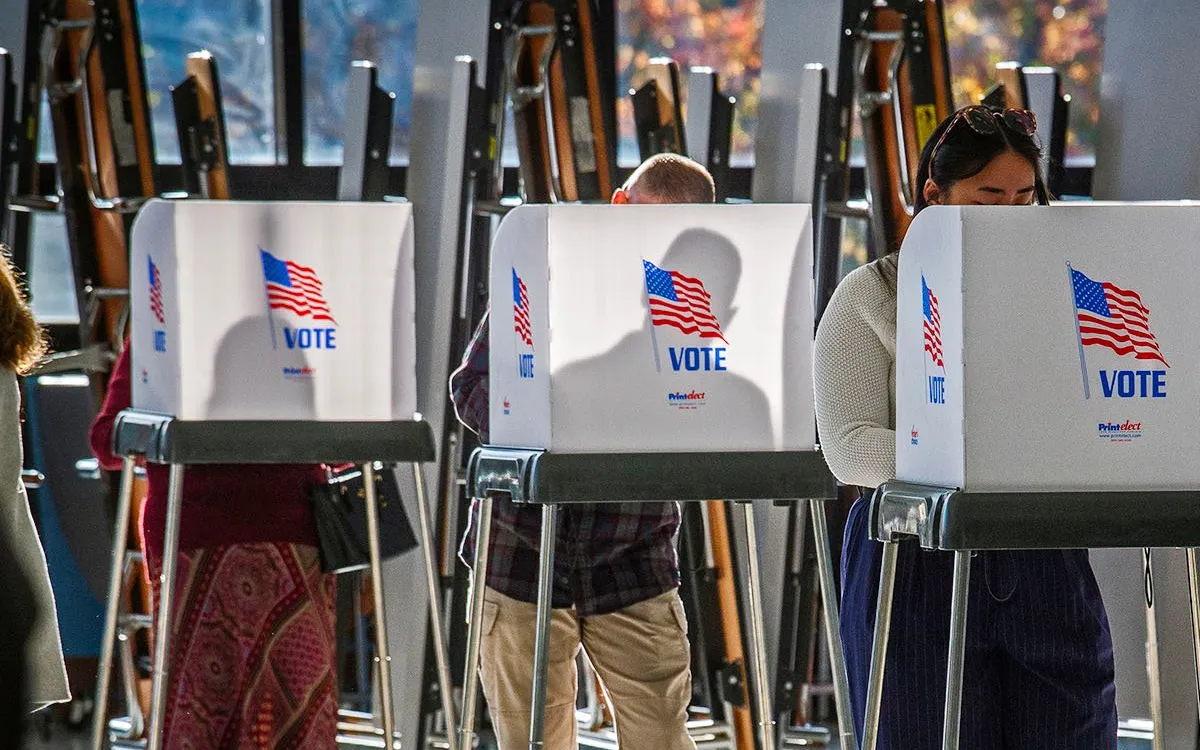
The U.S. House of Representatives has recently approved a significant piece of legislation that voting rights groups fear will severely restrict access to the ballot for millions of Americans. This bill, known as the Safeguard American Voter Eligibility (SAVE) Act, received support from the Republican-controlled House during a vote on Thursday. Advocates for voting rights have voiced strong concerns that this bill could create unnecessary barriers, particularly for married women and individuals who have updated their legal names.
The SAVE Act is framed as an initiative to prevent non-citizens from voting, despite the fact that such occurrences are already illegal and exceedingly rare. Under this proposed legislation, individuals would be required to present official documentation—such as a passport, birth certificate, or other citizenship documents—when registering to vote or updating their voter registration information. This requirement raises significant questions about accessibility for many American citizens.
Voting rights advocates have highlighted that the SAVE Act could disproportionately affect women and marginalized groups. Specifically, an estimated 69 million American women and 4 million men lack a birth certificate that corresponds with their current legal name. This discrepancy often arises from changes due to marriage, assimilation, or gender identity considerations. As a result, these individuals may face substantial challenges when attempting to fulfill the new documentation requirements outlined in the bill.
Supporters of the SAVE Act, primarily from the Republican Party, assert that states will be able to implement alternative processes to assist individuals whose names do not match their birth certificates in proving their citizenship. However, voting rights groups express deep concern that this legislation will disenfranchise individuals from marginalized communities who are less likely to possess the necessary documentation readily available. Estimates suggest that over 21.3 million citizens of voting age—accounting for more than 9 percent—do not have immediate access to the documents required to prove their citizenship.
Moreover, advocates warn that if the SAVE Act becomes law, it could lead to the elimination of widely-used voter registration methods, including online registration, mail-in applications, and registration drives. This change would place additional burdens on an already strained election workforce, which has been primarily led by women and has experienced significant burnout and harassment in recent years due to ongoing disinformation campaigns surrounding election integrity.
This is not the first time the SAVE Act has made its way through Congress; the House passed a similar version of this bill last year, but it ultimately stalled in the Senate. The current iteration of the SAVE Act is now headed back to the Senate, where Republicans hold a 53-seat majority. For the legislation to pass, it will require support from at least 60 senators, making its future uncertain.
In conclusion, the passage of the SAVE Act by the U.S. House raises significant concerns about voting accessibility for millions of Americans. As discussions continue in the Senate, voting rights advocates will likely remain vigilant about the potential implications of this legislation on the democratic process.